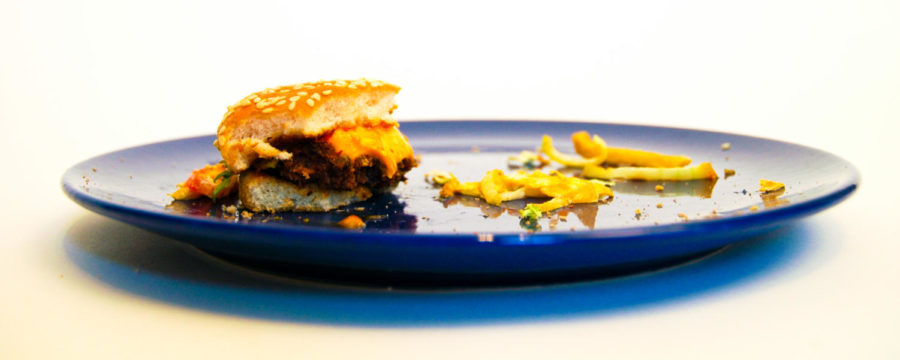Vieira: The quarantine diet
November 10, 2020
Forget about the Freshman 15 — what about the quarantine 15?! Almost half (48.6 percent) of the surveyed population of a study conducted this June gained weight since the beginning of quarantine.
The public health emergency is not only exclusive to the virus. Nutrition also plays a big role. A wholesome, well-balanced diet can be immensely beneficial for an individual; as Dr. Ron Blankstein — a preventive cardiologist at Harvard-affiliated Brigham and Women’s Hospital — ratifies, a healthy diet has been notorious for fighting — even reversing — conditions like diabetes and heart disease. I specifically focused on these two because they are strictly linked to the virus; adults as well as children who suffer from underlying conditions like heart disease and diabetes are at a higher risk of developing severe illness, according to the Centers for Disease Control and Prevention, hence reinforcing the argument that a healthy diet is a way to ward off COVID-19.
Certain nutrients found in specific food items can also naturally boost the body’s serotonin production, therefore aiding in the battle against an already declining mental health rate, only made worse by the lockdown.
Eating habits and mental health overlap since certain external stimuli or mental conditions can cause impulsive behaviors like stress eating. So, because of the increased levels of stress, anxiety and fear amongst the population, it is easy to put two and two together and see where this is going. The National Center for Biotechnology Information came out with a recent study that explains the correlation between feelings, stress and food choice. It reckoned the following: “In explicating a five-way model of emotions and diet, it was found that changes in food intake may be the ‘natural’ response to stress and heightened emotional states through both psychological and physiological mechanisms.”
However, how are we supposed to know what’s good for us when Kraft pushes mac and cheese for breakfast? Being healthy is difficult when many cues around us suggest us to do otherwise; advertisements about unhealthy foods are prevalent in television, and as we all know, humans are creatures who learn by first observing then mocking an action. It is via this process we construct many of our habits as well, including food consumption. The vast majority of marketers don’t really have the consumer’s health as a primary concern; in fact, many ads about unhealthy foods fail to disclose nutritional information of the product or about its possible impact on underlying conditions.
Another way in which these kinds of ads impact us is much more subliminal. What promoters sometimes aim to accomplish is for us to associate certain foods with places and activities. An easy example would be that of burgers and a tailgate. Now, due to the pandemic, the places, the people and the activities are no longer in the picture, so what are we left with? Correct, that one food item. In a lockdown permeated by melancholy and a deep desire to connect, food can be something that brings us comfort and allows us to relive the good old days through taste. Although this might not seem like a toxic action, it could easily backfire.
After our brain starts to associate food as the sole stimulant of dopamine and serotonin production, attributable to the lack of other external stimuli, we begin to further compromise both our mental and physical health. This is why it is fundamental to have a hobby or a pastime we enjoy, especially now that our options are more limited. We will begin to associate an activity with pleasure, in this way rewiring our brain’s reward pathway system, consequentially boosting our mood and allowing us to rely less on food for gratification.

















